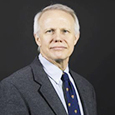Mindfulness Is Not Prayer
- RANDALL SMITH
"Let's begin with a prayer," said the meeting organizer.
 Prayer by John Phillip RA, Royal Academy of Arts, London.
Prayer by John Phillip RA, Royal Academy of Arts, London.
A priest got up, asked people to bow their heads for a moment of silence and said, "Let's be mindful of those suffering from Covid and from other diseases and of the homeless suffering in the streets and those suffering in war. Amen."
I don't want to be churlish, but that's not a prayer. Being "mindful" of people's suffering is not a prayer. I'm not sure it's even being mindful. If you read up on "mindfulness," you'll find that it is a type of meditation in which you focus on being intensely aware of what you're sensing and feeling in the moment.
Practicing mindfulness involves breathing methods, guided imagery, and other practices to relax the body and mind and help reduce stress. I don't think calling to mind disease and homelessness and war for a few seconds qualifies.
I mentioned this to a friend who told me that on his ostensibly Catholic campus, he had been through dozens of "mindfulness" exercises. And instead of praying together, campus leaders would talk about the whole campus "breathing together." I'm all for breathing—full disclosure: I do it all the time. And I probably should be more "mindful"—especially when my wife is telling me things and I'm not really paying attention (mea culpa). But neither "breathing together" or "being mindful" is prayer.
Prayer, when it is petitionary prayer, involves asking God for things, and asking as though you actually believe He can and will do it. If you don't believe God can or will answer your prayers—if you're not sure that God even exists—well, what can I tell you? I'm sorry. That's sort of sad. But please just don't call that thing you're doing "prayer," especially if you're a Catholic priest. (I wouldn't suggest calling it "being mindful" either, but that's not my department.)
Who, if asked to pray, would reply: "Don't be anxious about your sick child or your dying father. I'll be mindful of them"?
Contrast this with the words of the wonderful, elderly French woman I had as a neighbor who made clear to me in no uncertain terms (in that way only an elderly French woman can) that I had to be "insistent" with God in prayer. "You tell Him what you need! You insist! You ask knowing He will do it!"
If you ask a woman on a date or a professor for help in a way that suggests you don't believe they'll do it, they won't. God is better than that, but He is also looking to make you better. And if you don't believe He exists or believe that He does good things, it's harder for Him to do good things. When Jesus found no faith in His hometown, He walked away.
Mass is wonderful because it contains all sorts of prayers. In addition to petitionary prayers, there are prayers of contrition, prayers of remembrance, prayers that give glory, and prayers of thanksgiving, the Our Father, and the Eucharistic prayer.
I sometimes wonder when I'm sitting in a happy slappy mass with "Fr. Stan" or "Fr. Dave" whether they're aware of the presence there: not only the presence of the God of all Creation who emptied Himself of His divinity and died on a cross, in the presence of whom, if we really believed He was there with us in the room as completely as He was in the upper room after the Crucifixion, most of us could barely sit still or remember our own names. But also the presence of those suffering pain, anxiety, and sadness.
Here is a man who has just been told he has cancer. Here is a woman who lost her baby last week. Here is a young man or woman who invested themselves deeply in a romantic relationship they thought would last forever and now sit brokenhearted, unsure about their future, wondering whether they will ever find healing and love.
What such people need and want, if they've dragged themselves to a church at all, is prayer, something that connects them with the God of Consolation, the Lord of History and of our lives, the Redeemer who took on our suffering. If and when Fr. Dave is no longer embodying Christ and instead sets off down the aisle shaking hands like he was running for office; when, in other words, he stops acting in persona Christi and makes a point of being "Fr. Dave," then the connection is broken and the sadness seeps back in like a cold knife in the chest.
The frustration is akin to that feeling you get when you've come to a party to see a special young woman, but an annoying person who can't stop talking meets you at the door and won't let you go. Across the room, you see her, and all you want to do is talk to her, but there's this person jabbering on, and you are sorely tempted to shout, "Would you please just shut up and get out of the way! I'm not here to see you! There's someone important here, my heart is bursting, and I must talk to her!"
If you're not addressing your prayers to God in the belief that God can actually answer those prayers and make serious changes in the world, then calling what you're doing "prayer" in a Catholic context is a kind of hypocrisy; it's a mask of piety concealing a tragic emptiness.
There are people who come to the Church with real needs, real sorrows, depression, and disease. So, when someone asks for a prayer, either pray that God helps them—pray like you were pleading in the presence of Christ crucified Himself. Or do something concrete to help the way a pagan non-believer would. Or both. "Mindfulness" is thin gruel to people who need real sustenance. Don't pretend. It's offensive. And really irritating. So pray, or get out of the way.
 This is Meaghen Gonzalez, Editor of CERC. I hope you appreciated this piece. We curate these articles especially for believers like you.
This is Meaghen Gonzalez, Editor of CERC. I hope you appreciated this piece. We curate these articles especially for believers like you.
Please show your appreciation by making a $3 donation. CERC is entirely reader supported.

Acknowledgement
 Randall Smith. "Mindfulness Is Not Prayer." The Catholic Thing (October 31, 2023).
Randall Smith. "Mindfulness Is Not Prayer." The Catholic Thing (October 31, 2023).
Reprinted with permission from the The Catholic Thing.
The Author
 Randall B. Smith is a Professor of Theology at the University of St. Thomas in Houston, Texas. His latest book is From Here to Eternity: Reflections on Death, Immortality, and the Resurrection of the Body.
Randall B. Smith is a Professor of Theology at the University of St. Thomas in Houston, Texas. His latest book is From Here to Eternity: Reflections on Death, Immortality, and the Resurrection of the Body.




